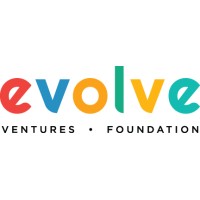

Next.ID hosted a panel discussion in Bangkok on 4th January 2023 where Web3 & identity thought leaders gathered to exchange ideas and discuss the concept behind Decentralized Identities (DID).
Speaker Info
- Hannah Shen, Head of Growth @Next.ID
- Max, CEO @Port3
- Vincent, Partner @AC Capital
- Kai, DID Builder
- Moderator: Yisi Liu, Initiator @Next.ID
You may watch the full recording on YouTube: youtu.be/hdcOIXtUVEo?t=1373
Concept and framing of the term “Decentralized Identity (DID)”. Why does it matter? (37:00 Yisi)
38:21 Kai: Digital identity should not be directly linked to your digital assets, bank statements, NFTs held, etc. There should be an intermediate layer that protects user privacy while providing information necessary for apps to function properly. DID is an umbrella term that encapsulates projects and services such as ENS, privacy-preserving protocols, ZK solutions, etc.
40:13 Vincent: When we think about DID, we first ask ourselves,” Why decentralizing matters?” If we look at Web2 account systems, they are all generated in a centralized manner, in a centralized server. If the entity so wishes to ban your account, it can easily be done so. However, with DIDs, we will be able to generate accounts/wallets locally and you have control over what you own.
Secondly, DID enables interoperability of your account/wallet. With a single wallet address, the user will be able to interact with multiple protocols and Web3 services, without any boundaries. Unlike that of Web2 whereby user accounts are bound specifically to a particular website/server. (e.g. Google accounts can only be accessed with Google services).
43:30 Max: In the Web3 world, DID allows for universal accessibility of your digital identity. Say, for example, you have been active on Facebook for a long time. Your connections, posts, likes, and comments on Facebook will remain solely on Facebook’s server and it cannot be seen and accessible on other platforms. If you do wish to build your brand on another platform like Twitter, you have to start from scratch. However, the concept of DIDs will allow you to bring your digital identity and footprint across other platforms.
46:07 Hannah: The concept of DID is the same as Self-Sovereign Identity (SSI). At its core, users have control over their private key and public addresses and be able to verify/attest credentials among themselves, without involving a 3rd party.
From the value protection side in the future, when users access services and authentication through DID/SSI, it will give users freedom and safety.
From the value creation side, there could be reputation scoring built using DID methods.
The idea of SSI has been around for more than a decade. However, Web3 has provided the technology to utilize this idea. Right now there are many wallet addresses on different blockchains that contains different on-chain behaviors across different ecosystems. Web3 DID is an idea that connects the on-chain world with the off-chain world and that is what Next.ID has been working on it actively.

How do we strike a balance between the online freedom of users and user privacy/security? (49:30 Yisi)
50:25 Vincent: We are unable to enforce this idea because users simply do not care. People do not mind trading their online information for user convenience. Especially so for the majority of people who have other priorities in life and need to make a living. Their personal private information is deemed to be not important and they do not mind giving it up, as long as they can get things done as quickly as possible.
The way to get mass adoption for DIDs would be to get role models in the space and eventually make it into a social norm for the rest of the people to follow.
54:50 Max: What Port3Network does is that we request users to provide their cross-platform identity. It is done by providing incentives to users from other projects.
59:38 Hannah: While we have all the privacy-protecting benefits of DID, it comes with an entry barrier for many users. We builders constantly need to think about educating end-users and how to get them to care.
In terms of getting end-users to enjoy the freedom of their ownership through DID technology, there are 2 parts.
- How DID can be a better service for builders and developers to get onboard. E.g. DID login authentication is used as an alternative or additional option to sign in on their server, be it a decentralized or centralized server. It provides a gateway for users to learn about what DID and it allows them to set up DID while using their services. In order to achieve this, we need consensus from Web3 applications to adopt it as the default ID management/login solution.
- In terms of finding the needs of end-users on the application side, like what Max mentioned, would be to encourage users to verify themselves through DID which could bring benefits such as better reputation building and credit scoring, without relying on 3rd parties. This form of verification is done so through gamification of on-chain actions. This will greatly incentivize end-users to adopt and care about DID, not solely on the moral high ground of “protecting user privacy” point-of-view, but it actually brings real benefits. For application layer builders, This is something that application layer builders can think about, find out the true needs of cyber citizens which are not being fulfilled on centralized platforms today.

Do you think users need to be educated about the concept of DIDs? (1:08:40 Yisi)
1:09:00 Hannah: Users do not need to know the ins and outs. It depends on the targeted users. To target early adopters, we will need to get them to understand why DID in general is necessary. Whereas for mass adoption, the level of understanding may be weaker. However, the bare minimum is for users to know what a private key is, similar to the understanding of how you manage your current accounts.
1:09:40 Max: “When you fly on a plane, do you think a user needs to know the aerodynamics of how the plane works?” Users do not need to understand the concept of DID. Instead, it is important for users to know how will DID benefit them in delivering the service that is needed, which is not attainable with other identity services.

Main Takeaway
- Is Decentralized Identity (DID) the right framing? Why it matters? DID is the response to the centralized account system and the privacy in Web2. We’ve seen movements on self-sovereign identities and DID long before Web3 but the growing crypto adoption makes blockchain-based identifiers more relevant, giving rise to Web3 DIDs and hybrid IDs.
- We should first think about what kind of applications and developers could benefit from DID versus traditional web2 id system or wallet-first solution and find the utility and motivation for users to own DIDs
- End-users should at least know how to manage their DIDs similar to remembering their password but we don’t need everyone to agree with the technical and philosophical reasoning around decentralized identities and related technology.
Project Info:
- Next.ID is the world’s first Decentralized-Identity-as-a-Service (DIaaS) protocol
- Port3 is a one-stop platform to create, utilize and evolve your Web3 identity.
- AC Capital is an investment firm focusing on Blockchain and Fin-tech, committed to discovering unicorns and boosting their development.

For anyone who is interested in Next.ID and DIDs in general, please do follow Next.ID’s official Twitter account @NextDotID and join our Telegram and Discord groups. We will be hosting more similar events and will continue to invite more industry leaders and emerging Web3 builders to talk with us.



























【免责声明】市场有风险,投资需谨慎。本文不构成投资建议,用户应考虑本文中的任何意见、观点或结论是否符合其特定状况。据此投资,责任自负。


